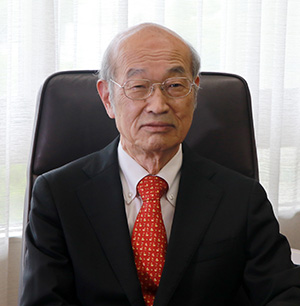The first meeting between the top diplomats of the United States and China under new President Biden took place in Anchorage, Alaska, over two days, March 18th and 19th. I'm sure you remember this from the television coverage of the opening of the meeting, when the representatives of the two countries were violently insulting each other.
First, the US side expressed concern over China's recent actions, such as the persecution of the Uighurs and its oppressive attitude toward Hong Kong and Taiwan, stating that "China is a threat to the world order." The Chinese representative responded by shouting that America has no right to say such things, given the intensifying divisions caused by issues such as racial discrimination and the loss of public trust in its government. He then went on to make his usual argument that "China has its own version of democracy."
Many in the media viewed this meeting as a clash of national views. They said that the US-China relationship had entered a new dimension, different from the economic issues that dominated the Trump administration. This reminded me of something Henry Kissinger, former Secretary of State who successfully restored US-China relations during the Nixon administration, wrote in his memoirs, "China: The New Frontier."
--Chinese emperors and elites have always considered China to be special, not just a "great civilization" among many others, but "China is civilization itself."
According to this way of thinking and values, the visit of foreign envoys to the Chinese imperial court was not for the purpose of negotiation, but to show respect to the emperor and be influenced by him. When envoys were sent abroad, they were not sent as diplomats, but as "messengers from heaven," awe-inspiring.
In fact, there is a famous historical incident involving diplomatic envoys kowtowing. From 1793 to the following year, the British Empire sent a large delegation to China as a royal envoy. The purpose was to establish free trade and equal diplomatic relations. At the time, Britain was undergoing industrialization due to the Industrial Revolution, so the envoy sent many valuable items as gifts to the Chinese emperor (Emperor Kangxi), including cannons, various industrial products, and watches.
However, Lord Macartney, the head of the mission, was not allowed to see the emperor even after waiting for several months. He was required to kowtow before the emperor by rubbing his head on the floor. Lord Macartney resisted this. In the end, they compromised by kneeling on one knee in the British style, but on the day, the emperor did not show up, and only a letter of no response was handed over by an official.
Am I the only one who sensed a whiff of "Sinocentrism" in the remarks made by the Chinese representative at the recent US-China summit, that "the world is merely an object that should receive the benefits of Chinese civilization"? Perhaps this means that the US should have approached the summit with an attitude similar to that of a vassal of China.
According to Professor Angus Maddison, who estimated the trends in the world's GDP (gross domestic product), in 1820, 60% of the world's GDP was generated in Asia, mainly China. Western Europe, including the UK, accounted for only 23%. At least until the beginning of the 19th century, China was the leader of civilization and the world's richest economic power. After that, its national power declined after the Opium Wars, but in the 21st century it has rapidly recovered as an economic power once again.
At the Plenary Session of the Central Committee held at the end of October last year, the Communist Party of China set a goal of "doubling total GDP and per capita GDP by 2035 and reaching the rank of a moderately developed country," and this goal was confirmed at the National People's Congress held this March. There is a strong view among experts that China's GDP will overtake that of the United States by 2030. I take a more critical view, but there is no doubt that China is becoming a "powerful nation" in terms of national power, military strength, and scientific and technological capabilities. President Xi Jinping has set a policy of realizing a "modern socialist power" by 2049, the 100th anniversary of the founding of the People's Republic of China by the Communist Party.
It seems likely that the unique view of the nation as "Chinese-style democracy" will be promoted even more firmly.
(Diary entry dated March 26, 2021)

[Profile of Shigeo Uchida]
Graduated from the Faculty of Economics at Keio University in 1965. Joined the Nikkei Inc. After working in the Securities Department of the Editorial Office, the Japan Center for Economic Research, head of the Securities Department at the Tokyo Head Office and as an editorial writer, he became Professor Chiba University of Commerce in 2000. He has been Managing Director Corporation since 2011 (until May 2019). He is also Professor Emeritus Chiba University of Commerce. He has served as a member of the Economic Council, Securities and Exchange Council, and Research Council for Energy, among others. His hobby is chorus.
<Major publications>
"Seminar: Introduction to the Japanese Economy" (co-author, Nihon Keizai Shimbun)
"Showa Economic History (Part 2)" (co-author, Nihon Keizai Shimbun)
"The New Japanese Economy" (co-author, Nihon Keizai Shimbun)
"History of Japanese Securities 3" and "Now You Can Understand! How the Japanese Economy Works" (sole author, Nihon Keizai Shimbun, Inc.)
"New Introduction to the Japanese Economy" (co-author, Nikkei Publishing Inc.) and others